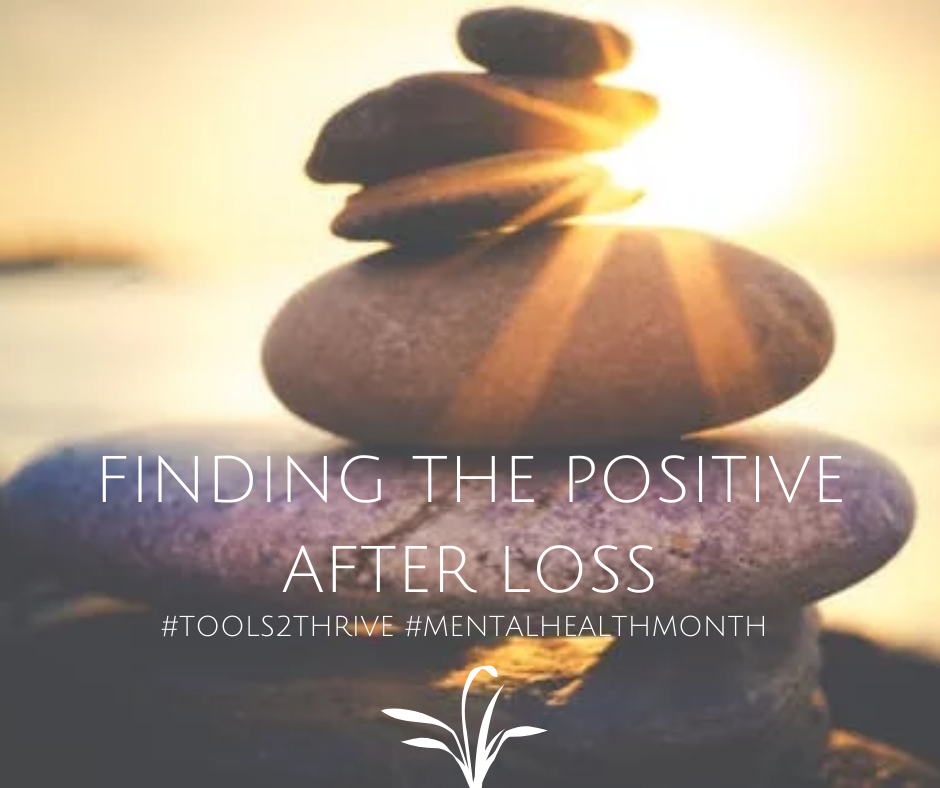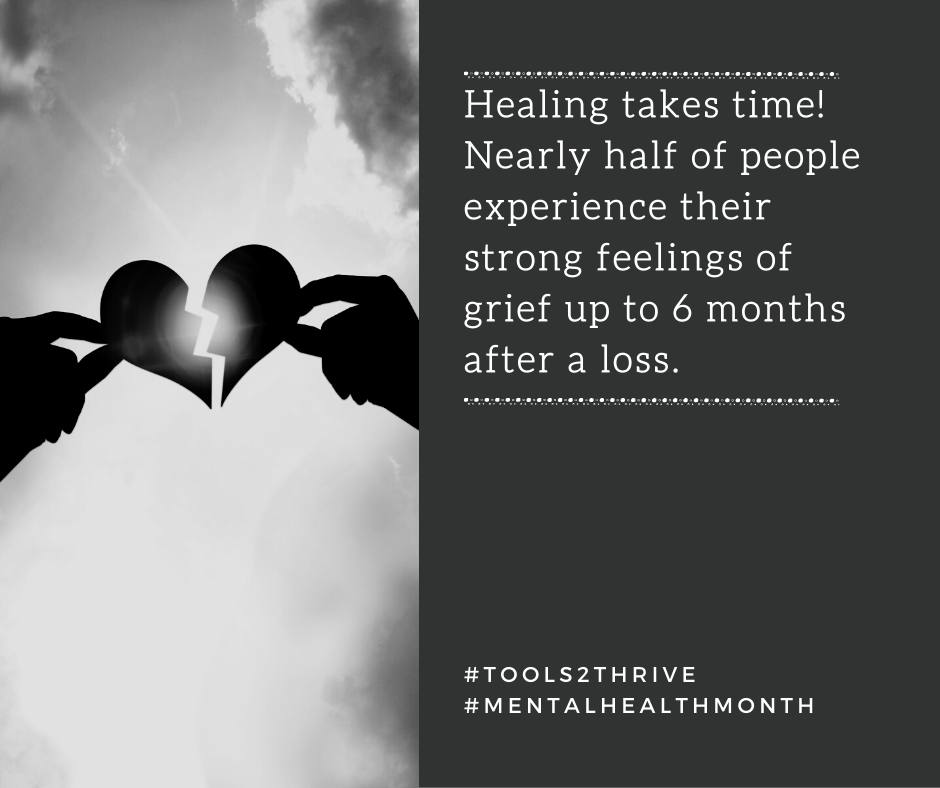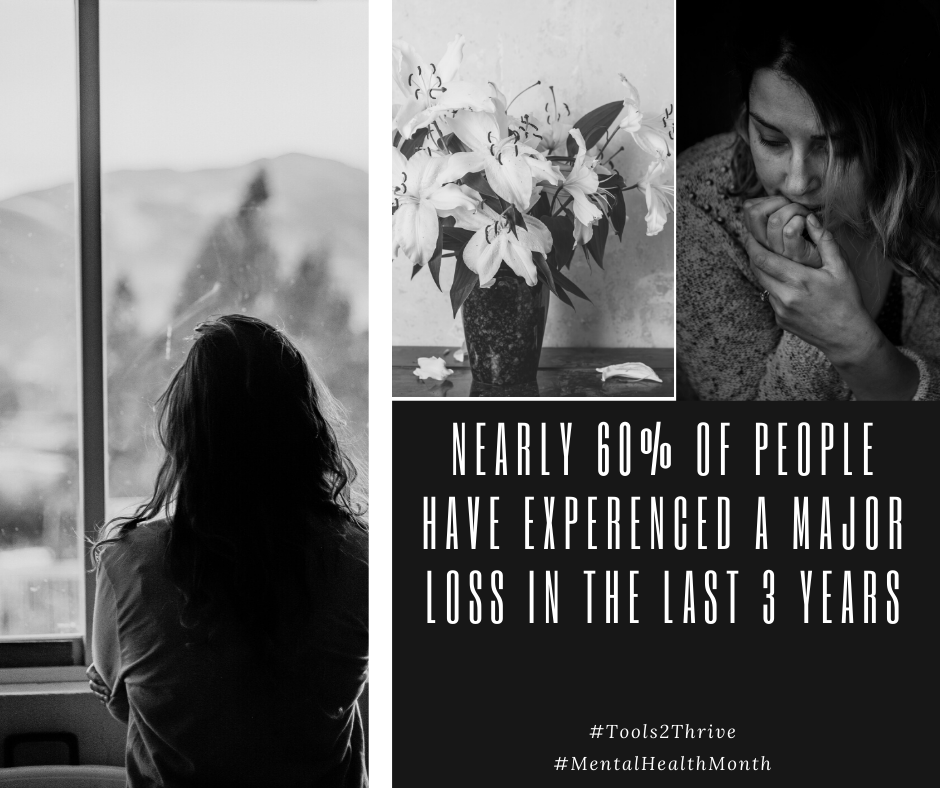During Mental Health Awareness Month 2020 we are sharing five practical “Tools2Thrive” that everyone can use to bolster their mental health and increase their resiliency in the face of challenging situations. These practical tools include owning your feelings, finding the positive after loss, eliminating toxic influences, creating healthy routines, and supporting & connecting with others.

At some point in our lives we will all experience loss. By looking for opportunity in adversity or finding ways to remember the good things about who or what we’ve lost, we can help ourselves to recover mentally and emotionally.
Doing what makes you happy can help you remember how to feel good after dealing with a negative or tragic situation and bring you back to a place where you appreciate all the positive things that life has to offer.
Fact: Gratitude improves physical, mental, and emotional health.
Practicing gratitude has been shown to reduce sadness and anxiety. Try it out:
- What is the situation you are facing that makes you feel bad? Or what is a common negative thought you struggle with?
- Are there other things going on in your life that you are thankful for? This does not have to be related to the situation in the first question. For instance, you can be thankful for your good health, having a stable home to live in, or a recent promotion at work.
Support groups exist to help you get through whatever loss or tragedy you’ve gone through. If you’re not ready to talk face-to-face, the internet is full of places where people gather to talk about their shared experiences that may directly relate to your loss.
Fact: Healing takes time! Nearly half of people experience their strong feelings of grief up to six months after a loss.

For more information on local grief/loss support services, visit the Agnesian: Bereavement Services website or see a list of local support groups. Virtual support options can also be helpful, find a list HERE.
It can be painful to continue to live your life without a person, thing, or situation you once had. Going through a loss and learning to carry on helps you become a stronger person while giving you the skills to deal with tough situations in the future.
Tip: Try to see your experience as strength.
Reframe your thoughts:
- Even though your situation is hard, is there something you have learned from it or some other silver lining?
- If you could go back dn change the original thoughts, what’s a healthier thing you can say to yourself? (For example: if you’ve just lost a loved one after they have been extremely sick, does it feel healthier to think about their death as an end to their pain?)

These experiences can make you stronger, if you allow it to. Rejoice in the times that you had and be grateful for them. Things change all the time and you can grow from them.
Creating a ritual or memorial for your loved one helps keep their memory alive. For example, it can be doing an activity they enjoyed, celebrating dates that were special to a loved one,or cooking their favorite meal.
Fact: Nearly 60% of people have experienced a major loss in the last three years.

Oftentimes, people try to deal with loss on their own, but this doesn’t have to be the case. Reach out for support, do things that the person you lost loved to do, and remember and appreciate all the times you’ve had.
Mental Health of America has created several handouts regarding practical tools to thrive when faced with difficult situations affecting your mental health.
CLICK HERE for a PDF with additional information about Finding the Positive After Loss
To learn more about this topic and other mental health awareness activities, visit Mental Health of America’s website.
